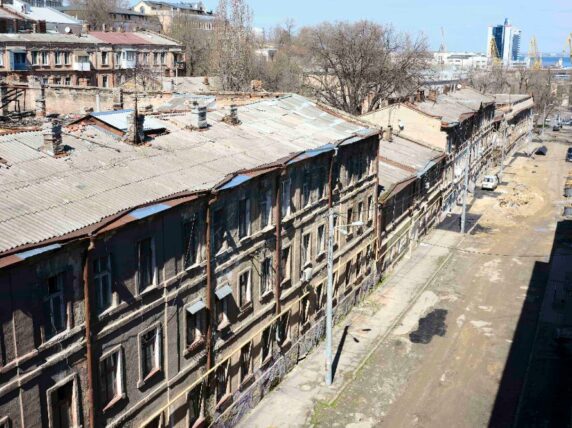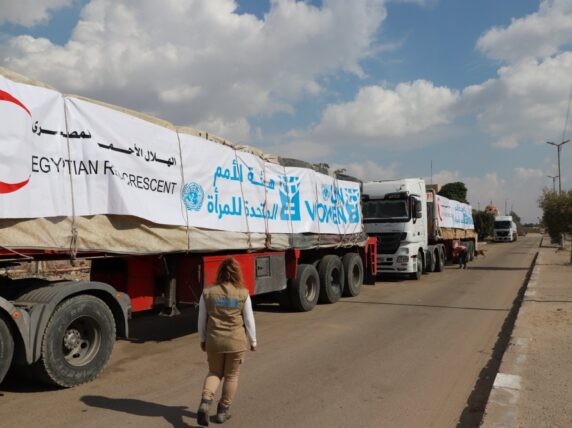Reinstating concrete commitments to fragile and conflict-affected states can promote stability and security in places like Syria
The recent earthquake in Syria has added a new layer of complexity to an already dire situation in the conflict-affected country.
The earthquake not only caused devastation and destruction but also further exposed the fragility of Syria’s already weakened infrastructure and disrupted access to essential services, which is bound to further exacerbate the ongoing conflict.
The conflict, compounded by natural hazards (floods, droughts, cold waves, etc), Covid-19, and the economic crisis, has in turn, also had a significant impact on the earthquake response efforts, delaying assistance and hindering access to the affected populations.
The earthquake and conflict in Syria highlights the need for a comprehensive and coordinated approach
The earthquake in Syria will have far-reaching impacts on the country, and is likely to exacerbate existing tensions and pose new risks to populations already struggling to cover their basic needs. Fragile and conflict-affected states (FCAS) are often characterised by weak governance, political instability, and a lack of basic services such as healthcare, education, and access to clean water. This creates an environment susceptible to the devastating effects of crises such as natural disasters, pandemics, and conflicts. In the case of Syria, the ongoing conflict has displaced millions of people and destroyed critical infrastructure, including hospitals, schools, and other essential services. The earthquake will place additional burden on communities which could lead to competition and conflict over scarce resources and space. The government of Syria’s delay in allowing assistance to reach North-West Syria, an area held by opposition forces, and the delayed response from the UN, has further exacerbated the situation.
The humanitarian response to the earthquake has seen delays and disruption because of the conflict
The difference between the international response to the earthquake in Turkey and northwestern Syria shows the challenges of providing assistance in conflict-affected areas. While Turkey received substantial assistance from multiple countries, humanitarian response in Syria is limited due to political restrictions. We need a new approach to providing assistance in these contexts. The recent decision by the government of Syria to open two new border crossings does not address the broader issue of the global community’s capacity to adequately address humanitarian needs. Providing assistance through deliveries across the Turkish border has been the only consistent method of assistance for civilians in northern Syria, and even this faltered. For four days, first responders, including Action For Humanity, were the only source of relief for affected communities.
Fighting and insecurity further impeded relief efforts, for example, the shelling of Marea by the Government of Syria further hampered the response. The earthquake in Syria has brought these challenges to the forefront and underscored the importance of effective conflict prevention and response measures in FCAS.
Join the Bond Humanitarian working group
Join this community of practice to discuss challenges, share resources and network with other professionals working in the humanitarian sector.
Find out moreRecent changes in the UK’s strategic focus and funding decisions risk increasing existing fragilities in FCAS
The UK holds an important role and responsibility in international development and in FCAS, both in humanitarian response and in tackling the root causes of conflict. The UK can leverage considerable financial and political influence to prevent the escalation of violent conflict, support people impacted by it, and reduce poverty in conflict situations.
Yet a total UK bilateral Official Development Assistance (ODA) to FCAS states fell by 40% in 2021 from 2020 – a cut of £740 million. The proportion of FCDO bilateral ODA to FCAS also fell from 54% in 2020 to 43% in 2021, whereas it was at 57% in 2017. Despite the higher marginalisation and the greater needs of people living in FCAS, people living below the poverty line in FCAS received less FCDO ODA than those living in non-FCAS.
Inconsistencies in strategy and ODA spend have favoured short-term stability over the long-term investment needed for conflict prevention and bottom-up peacebuilding. This is at direct odds with previous commitments to promote ‘structural stability’ and ‘resilience’ with poverty reduction and long-term peacebuilding as its primary goal.
Reinstating commitments to fragile and conflict-affected states can help to address the root causes of instability and conflict, and help build resilient societies
The complex and interrelated challenges of conflict and natural disasters in fragile and conflict-affected states require a coordinated and comprehensive approach that addresses the root causes of conflict and fragility, and invests in long-term development solutions.
The UK should reinstate commitments to fragile and conflict-affected states in the wake of the earthquake in Syria because such states are particularly susceptible to natural disasters and other crises due to pre-existing social, economic, and political challenges. In the case of Syria, the conflict has already made it difficult to deliver humanitarian assistance, and the earthquake has only compounded this challenge. UK and other donors must consider this a huge new issue that needs additional funding.
Supporting first responders, civil society organisations, and women’s rights organisations that are operating on the ground in Syria can ensure that affected communities receive the necessary assistance, and working with local actors and the international community to address the underlying causes of the conflict can help to prevent future crises. Currently the majority of funding to pooled funds and through individual donor states are going to UN agencies or INGOs, despite the fact that local actors were the only ones providing immediate response which saved lives. Local actors, CSOs and WROs should have access to adequate funding in a sufficiently flexible form, especially given the scaled-up NGO responses currently in operation. By prioritising marginalised groups, including women and girls, and investing in long-term development initiatives that can help to create resilient societies and reduce the risk of future conflicts and instability, the UK can help to promote stability, security, and sustainable development in Syria and other FCAS.
Recommendations
- Reinstate previous commitments to FCAS by defining that at least 50% of the FCDO ODA, funding should go to these regions. A needs-based approach should be adopted to prioritise FCAS, and more funding should be set aside for work on conflict drivers.
- Increase partnerships with local actors to provide humanitarian assistance, promote conflict resolution and peacebuilding, and help build the resilience of communities affected by natural disasters.
- Prioritise women and girls and marginalised communities in emergency response efforts, as they are disproportionately affected by natural disasters.
- Provide flexible multi-year funding that can adapt to changing needs and conflict dynamics over time, allowing for a more effective and efficient response to the complex and evolving needs of people affected by conflict and natural disasters.




